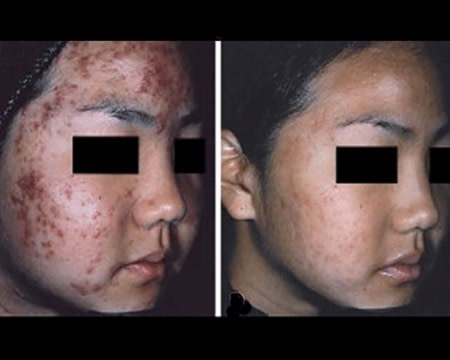Our Location
CW-0647-2650
Bawjiase Road, Jei-Krodua
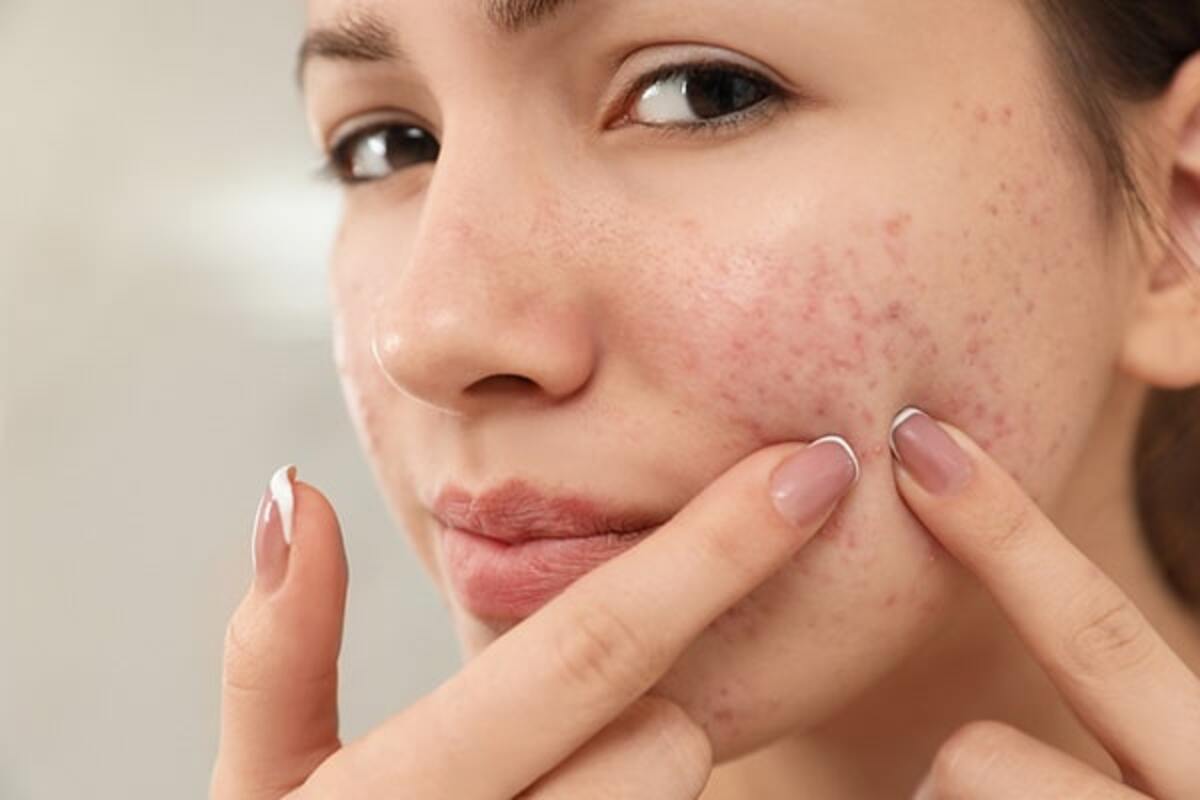
To see clearer skin, it helps to know what types of blemishes you’re dealing with. Each type requires different treatment.
Is that a blackhead, papule, or something else? See what the different acne blemishes looks like and how to treat them.
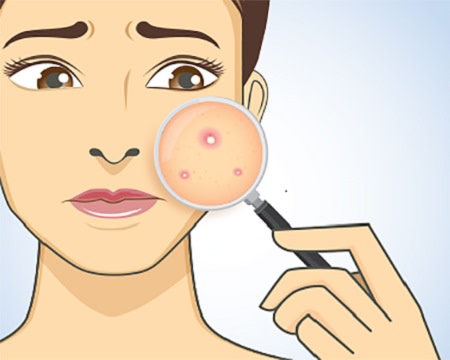
These appear when pores become clogged with excess oil, bacteria, and dead skin cells. If the pore closes up, you’ll see a tiny bump that looks white or flesh colored. These are whiteheads.
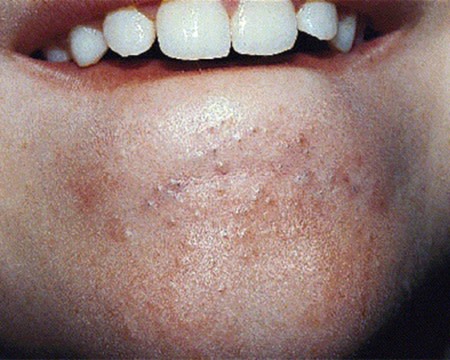
If the pore fills with debris but stays open, you’ll see a blackhead. The black dots aren’t dirt, so resist scrubbing. It will only worsen your acne.
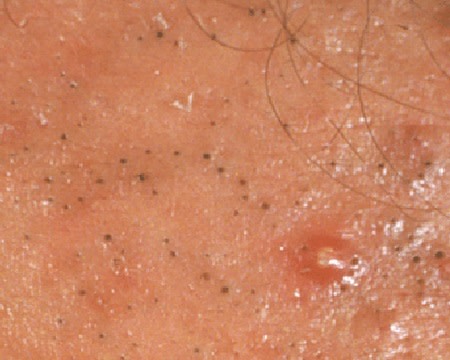
To unclog pores, dermatologists recommend using a retinoid. You can buy one retinoid, adapalene, without a prescription. You’ll also want to use a benzoyl peroxide wash. It can help get rid of the excess P. acnes bacteria on your skin.

Give treatment six to eight weeks to work. If you still see blemishes, you may want to see a dermatologist. A procedure like comedo (medical term for blackheads and whiteheads) extraction may help. Prescription-strength acne treatment is another option.
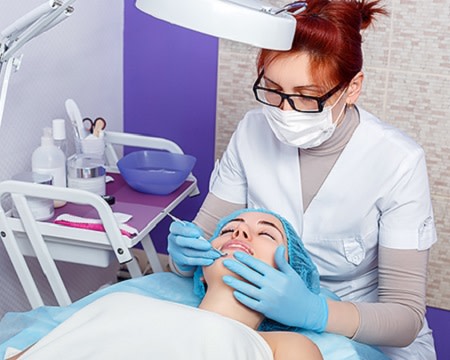
When excess oil, bacteria, and dead skin cells push deeper into the skin and cause inflammation (redness and swelling), you’ll see small, red bumps. The medical word for this type of acne blemish is a papule. They feel hard. If you have a lot of papules, the area may feel like sandpaper.
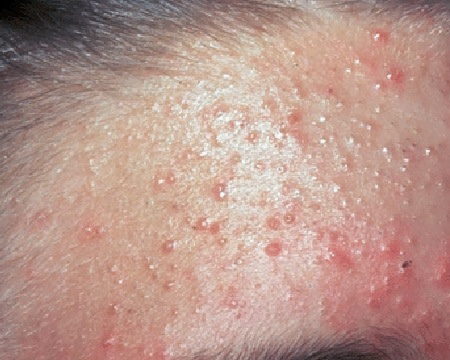
To clear this type of acne blemish, try washing your face twice daily with an acne face wash that contains benzoyl peroxide or salicylic acid. If you have a lot of papules, it can be helpful to see a dermatologist.
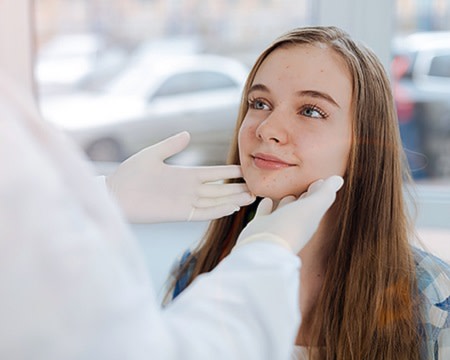
The medical term for this type of acne blemish is pustule. These blemishes are a lot like papules, except that pustules contain a yellowish fluid. You’ll often see a yellow- or white-colored center, as shown here.
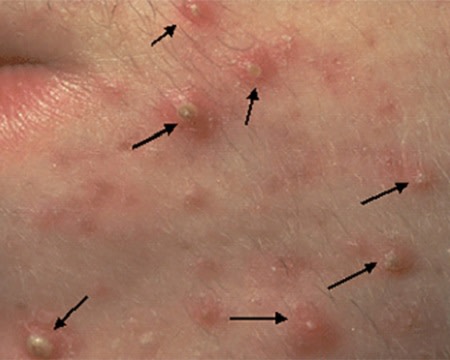
To treat, wash your face with an acne product that contains benzoyl peroxide or salicylic acid. Resist the temptation to pop these. It can worsen acne. If you don’t see results from treatment in six to eight weeks, see a dermatologist.
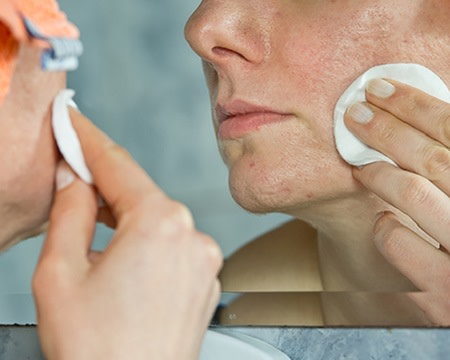
These acne blemishes penetrate deep into the skin, and often cause permanent acne scars when they heal. If you have acne that looks like this, you’ll need a dermatologist’s help to treat it. The sooner you start treatment, the fewer permanent scars you’ll have.
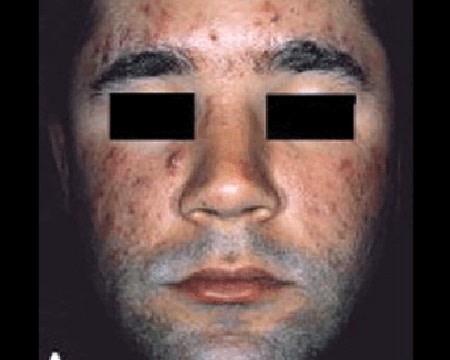
If you feel discouraged with your acne treatment and believe that nothing will work, you’re not alone. Don’t give up. Effective treatment is available. Sometimes, it requires a dermatologist’s help.
